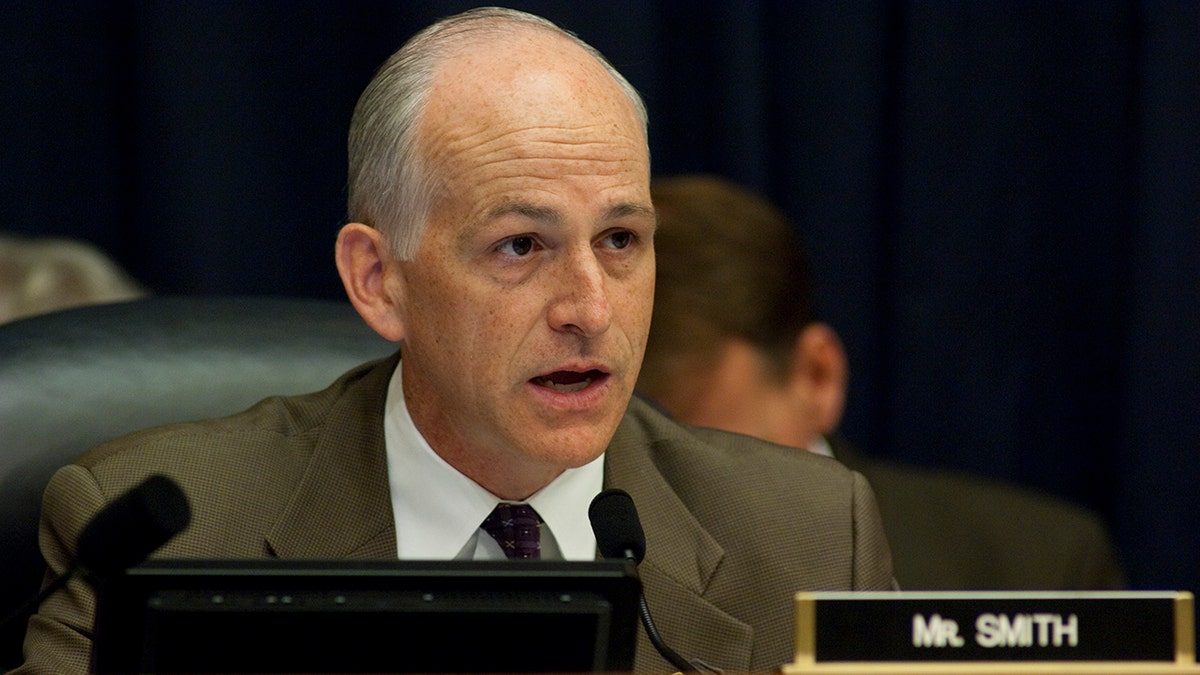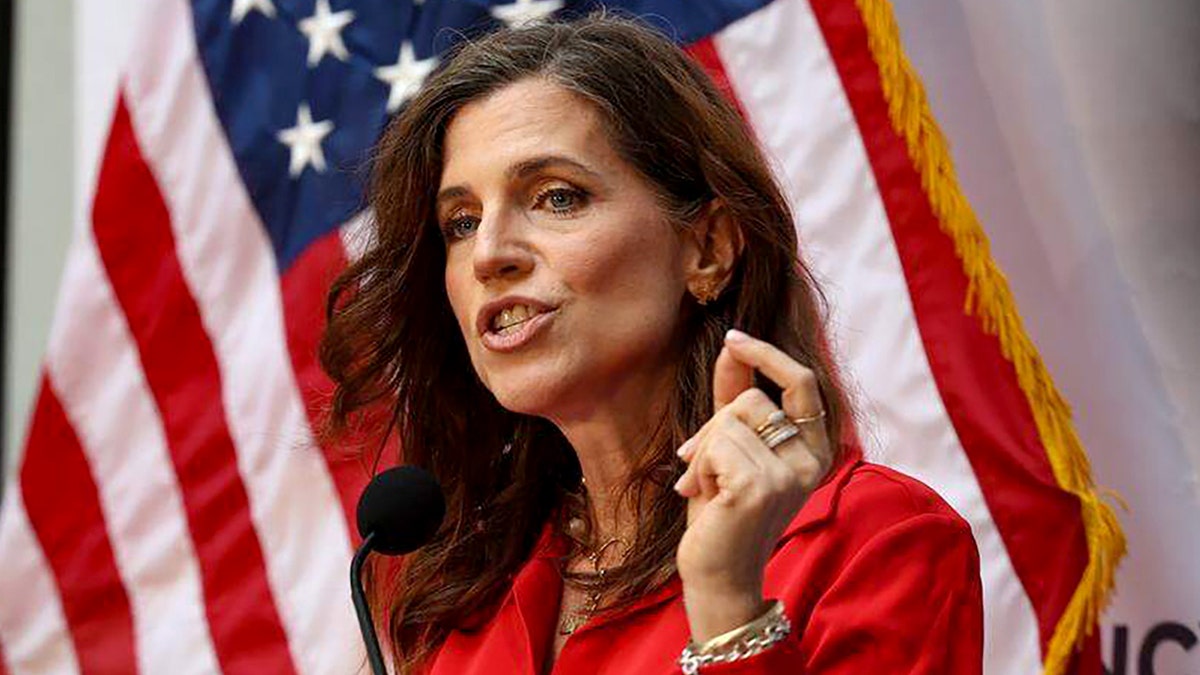NEWYou can now listen to Fox News articles!
The House of Representatives passed its version of Congress’ annual defense bill on Wednesday evening, albeit along stunningly partisan lines.
For decades, the National Defense Authorization Act (NDAA) has seen support from a majority of Democrats and Republicans. That’s changed in recent years, however, and the trend appears to have continued with the fiscal year (FY) 2026 bill.
The legislation passed 231-196 after a lengthy series of votes, with 17 Democrats voting in favor and 192 against. House Minority Leader Hakeem Jeffries, D-N.Y., and other top Democrats opposed the bill.
Democratic lawmakers had spent hours beforehand railing against GOP-led amendments on mainly transgender issues, including several which were successfully voted into the bill.
HOUSE MOVES TO EXPOSE EPSTEIN FILES, AUTHORIZES OVERSIGHT PROBE

Speaker Mike Johnson, R-La., and Minority Leader Hakeem Jeffries, D-N.Y., are pictured at the U.S. Capitol in 2024. (Getty Images)
Multiple amendments by Rep. Nancy Mace, R-S.C., for instance, placing limits on spaces that transgender service academy cadets can access, passed along mostly partisan lines.
Another amendment by Rep. Jimmy Patronis, R-Fla., aimed at eliminating the preference for motor vehicles using electric or hybrid propulsion systems and related requirements of the Department of Defense, passed with mostly Republicans – although six Democrats joined in approving it as well.
Rep. Cory Mills, R-Fla., introduced an amendment aimed at preventing pride flags or other ideological banners being displayed on military installations, which also passed along nearly partisan lines.
Rep. Adam Smith, D-Wash., the top Democrat on the House Armed Services Committee, announced on Tuesday that he would vote against final passage of the bill if certain GOP-led amendments made it into the final piece.
Smith also ripped Republicans for not allowing House-wide votes on solely Democrat-led amendments in the bill, all of which were filtered out when the House Rules Committee was considering the legislation earlier this week.

Rep. Adam Smith, D-Wash., the top Democrat on the House Armed Services Committee, warned he would vote against the bill. (Scott J. Ferrell/Congressional Quarterly/Getty Images)
“There are a number of problematic amendments included in the rule that focus on divisive topics rather than strengthening our national security. Should these amendments be adopted, I will vote against final passage of the bill,” Smith said in a statement.
“For 65 years, the passage of the National Defense Authorization Act has been a testament to shared respect for the duty of Congress to provide for the common defense and to place the needs of America’s national security and national defense above politics. The rule undermines this long-standing tradition by failing to include meaningful amendments offered by Democrats to address critical issues.”
Rep. Sara Jacobs, D-Calif., earlier spoke out against the amendments targeting transgender issues as well.
“Many people in this body have received gender-affirming care. Filler is gender-affirming care. Boob jobs is gender-affirming care. Botox is gender-affirming care,” Jacobs said.
RON KLAIN DODGES REPORTERS AFTER MARATHON GRILLING IN BIDEN COVER-UP PROBE

Rep. Nancy Mace, R-S.C., announces that she will run for governor of South Carolina during a news conference at the Citadel in Charleston, South Carolina, on Aug. 4, 2025. (Tracy Glantz/The State/Tribune News Service via Getty Images)
CLICK HERE TO GET THE FOX NEWS APP
It prompted an angry response from Mace, “That is ridiculous! You are absolutely ridiculous.”
Four Republicans voted against the bill in addition to the dozens of Democrats, including Reps. Marjorie Taylor Greene, R-Ga., and Thomas Massie, R-Ky., longtime skeptics of foreign aid funding in the NDAA.
Democrats who voted in favor of the bill include Reps. Jared Golden, D-Maine, Marie Gluesenkamp Perez, D-Wash., Don Davis, D-N.C., Henry Cuellar, D-Texas, and Vicente Gonzalez, D-Texas.
The NDAA is an annually passed bill that sets defense and national security policy goals for the U.S.
The Senate is expected to consider its own version of the bill as well, after which the two chambers must compromise and consider them again before they get to President Donald Trump’s desk for a signature.
